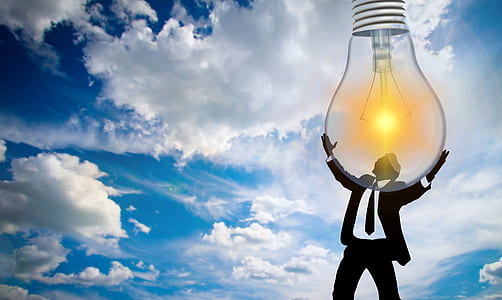
Stage 6. Where were you when stage 1 launched?!
DO YOU REMEMBER WHERE YOU WERE THE FIRST TIME WE HAD A BLACKOUT IN SOUTH AFRICA? Our friend Christelle, CEO of Ami Underwriting Managers does – and shares some tips on insurance and energy ….
“I clearly remember my first blackout … be prepared for a bit of a strange story 🙂
I remember the day very clearly – one Saturday afternoon late in 2007, I was enjoying a lovely summer’s afternoon sitting outside admiring the beautiful blue Boland mountains. A thought jumped into my head, and I asked my husband, very randomly at the time, what happens if we have a power failure? Blackouts at the time were as rare as hen’s teeth. He looked at me strangely – as he often did 🙂 – and said “I am sure we have candles somewhere.”
Lo and behold, that very night, we had our first major blackout in South Africa, and 15 years later, we are still dealing with an escalating crisis.
And for 15 years, I have been discussing the impact of load-shedding (as we know it now) on insurance claims.
In the past 12 months, the narrative has shifted. Insurers across the market are starting to make their discontent heard about the rising frequency and severity of claims due to load-shedding. It will serve us all well to heed these warnings and manage our proactive risk management as much as possible.

Most leading insurers in the market have come forward to say that they have seen a dramatic increase in claims because of power surge damage to electronic goods and an increase in motor accidents over the past 12 months. Insurers do not report separately on this particular cause of loss. Still, claims have increased to the extent that insurers providing the cover are now increasing premiums and excesses and limiting the cover provided in their current offerings. Insurers are reporting a dramatic increase in the following types of claims:
• Damage to electronic home contents goods.
• Damage to electric fences, gate motors, and swimming pool pumps.
• A marked increase in burglary claims because of a spike in home invasions and burglaries under the cloak of darkness.
• A particular spike in claims to fridge and freezer contents.
• Motor accident claims have spiked due to dark roads and unsafe driving conditions.
While insurers are referencing double-digit increases in these claims, a few leading companies have reported that their claims have doubled in some instances mentioned above.
Insurance is structured on the premise of risks being sudden and unforeseen. It is therefore evident that with increased frequency and length of load-shedding, damage due to power surge and load-shedding could very well become uninsurable or, at the very least, very expensive to insure.
What can we, as consumers, do to lift the burden of increased risk? The buck stops with you, and it will be near impossible to recover any losses suffered because of load shedding from Eskom or local municipalities.
Private homes: When discussing load-shedding claims for private homes, we enter another complex topic, as not all insurance policies are created equal. Some policies will cover the total cost of damage to electronic equipment due to power surges because of load-shedding and damage to freezer contents due to power interruptions. In contrast, others will cover only a limited amount, and then the bulk of personal insurance policies will provide no cover.
Tips for households to mitigate against damage caused by load-shedding
- Unplug appliances and sensitive equipment: It is always a good idea to unplug appliances or any other sensitive equipment or electronic devices that may be vulnerable to power surges. The items that could be affected include cell phones, laptops, desktop computers, servers, and LCD screens, which could be badly damaged when the power comes back on due to a spike in electricity flow. Commercial clients should install inverters to power critical equipment such as cash registers, point of sale equipment, and UPS protection or surge protection on sensitive electronic equipment.
- Beware your generator: Generators must never be used inside a home or enclosed workplace area, as the emissions can cause asphyxiation. The heat from the generator or a faulty connection to your home’s power supply can also cause fire damage, which would not be covered as this would likely be deemed as negligence. Ensure that generators are installed by qualified electricians and that they issue you with an electrical compliance certificate. Generators that switch on automatically can also pose an increased risk and must be carefully managed.
- Test your alarm system: During load shedding, alarm power packs and batteries may wear out faster, resulting in reduced functionality. This may also cause alarm systems to produce false alarm signals or even malfunction altogether. Many insurance policies require that you perform an annual or bi-annual alarm system check, which must be logged by your security company to ensure that it is in proper working order and that the battery is still functional. Failure to do so could impact your claim. You should also ensure that all alarm peripherals have fresh batteries if a wireless alarm system is used.
- Reserve power: reserve batteries should be installed and maintained to ensure that electric fencing and gates still work during load shedding. While reserve batteries generally last for six to eight hours when the power goes out, load shedding dramatically decreases a battery’s lifespan. It is crucial that these are tested or replaced, especially if the policyholder plans to go away over a holiday period.
- Secure your premises: If the power goes out, homeowners are advised to ensure that their properties are locked up and adequately secured to reduce the risk of opportunistic theft. Not only will this reduce the risk of theft and make the claims process more effortless if theft or robbery occurs.
- Be vigilant: Because the load shedding timetables are open to the public, criminals, unfortunately, may see blackouts as an opportune time to undertake illegal activities. Extra vigilance is required, mainly when arriving at or leaving one’s home or commercial premises during the evening. Keep a torch in your car should you come home in the dark and need to manually open your perimeter security gate.
- Light up your premises: Using solar power or battery-operated lighting to light up your premises can reduce the chance of opportunistic crime occurring. However, be sure to keep all such items fully charged.
- Review your insurance policies: You need to review the wording in your policies to see what is covered in the event of loss or damage to the contents of a home or building during a blackout. It is best to speak to your insurance broker about any additional coverage that may be needed.
- Follow the load shedding schedule: Rather, switch off sensitive equipment in a managed and planned way, mainly if you know that your area will likely experience load shedding at a particular time. It is always better to rather safe than sorry.
Be positive and hang in there: we have been through this before, so we know the risks and how to mitigate them. All we need to do now is buckle up and act to minimize the impact on our lives, homes, and wallets.”
With much love
Christelle, CEO Ami
Your Insurance Friend






